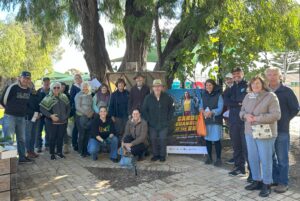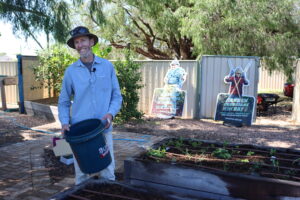Individuals and companies in the Australian fertiliser industry working to improve environmental outcomes were recognised at the recent 2022 Fertilizer Industry Environmental Awards, with two of the three national award recipients representing teams working to protect waterways in Western Australia.
CSBP Fertilisers was awarded the Fertilizer Industry Platypus Environmental Award for its contribution to the uPtake project.
uPtake is a partnership project designed to improve phosphorus use efficiency on grazing farms in south-west WA by improving farmer and industry knowledge, confidence and uptake of the science supporting fertiliser recommendations.
Sustainable agriculture project coordinator at the Department of Water and Environmental Regulation Dr Deborah Holtham said that the industry contribution to the uPtake project has been invaluable.
“The CSBP team supported the design and implementation of the pasture trials, and they been actively involved in the monitoring and maintenance. CSBP have attended field days and supported our extension work with farmers to increase their confidence to apply fertiliser based on recommendations from soil testing,” said Dr Holtham.
“It is fantastic to have CSBP and other industry representatives working collaboratively to improve environmental outcomes for our waterways, and we very much value their input through the project’s technical reference group.
“The highly collaborative uPtake project has led to a greater consensus on the validity of the critical values used to inform phosphorus fertiliser recommendations, as the trial results show that the national critical values are highly relevant to south-west WA.”
uPtake is a four-year project led by Department of Water and Environmental Regulation (DWER) and the Department of Primary Industries and Regional Development (DPIRD). The project is jointly funded by the State Government’s Healthy Estuaries WA program and the Australian Government’s National Landcare Program.
The Fertilizer Industry Snapper Environmental Award was awarded to senior soil scientist Dr Cameron Gourley and DPIRD principal research scientist David Weaver for their work developing national standards for soil testing for Australian agriculture in ‘A guide for fit for purpose soil sampling’.
They developed the guide together, in their own time, motivated by a deep understanding of the importance of accurate and consistent soil sample collection and a commitment to improving the quality and standards of nutrient management advice and practice in Australia and globally.
“We are really proud of our colleagues and pleased they have been recognised for their contributions to improving nutrient management in WA and beyond. The national soil sampling guide has set a standard for the whole industry, and has been widely adopted by contractors, agronomists and farmers in south-west WA,” Dr Holtham said.
“The guide enables us to support farmers to take accurate and representative soil samples. It helps us implement the do-it-yourself soil testing program and extend the reach of the whole farm nutrient mapping program as part of Healthy Estuaries WA.
“Both these awards recognise the achievements of the fertiliser industry, grazing groups, growers, scientists and government agencies, all working together for better outcomes for our environment, and especially the health of our waterways.”
Fertilizer Australia executive manager Stephen Annells said the awards were designed to showcase and celebrate the work at all levels within the industry to drive environmental progress and outcomes.
National Soils Advocate, the Honourable Penelope Wensley AC, presented the awards and said that all of the recipients had gone above and beyond the normal course of their work to improve the environmental performance of the fertiliser industry.
“The award recipients have undertaken work which ultimately improves nutrient use efficiency, minimises nutrient loss and benefits the environment, stretching from the Great Barrier Reef to the estuaries in south-western Western Australia and beyond,” Ms Wensley said.




















